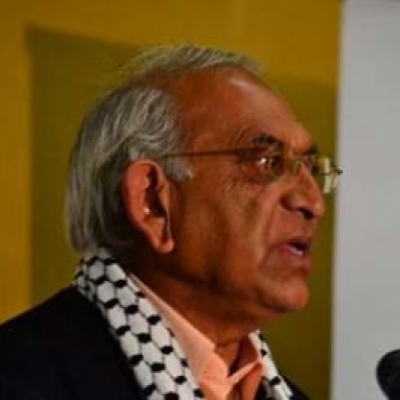



 Iqbal Jassat
Iqbal JassatTwo of Morocco’s best-known journalists are languishing behind bars without any hope of being released any time soon.
Tawfiq Bouachrine and Soulaiman Raissouni are among several journalists targeted by Moroccan authorities in violation of their right to freely practise their craft.
Questions raised by independent monitors who have attempted to obtain clarity about their incarceration, alert us to the possibility that the circumstances of their arrest and conditions of imprisonment, smack of malice, vindictiveness and illegality.
Founder of Akhbar Al-Youm newspaper, Bouachrine has been detained since his arrest in February 2018.
Following a trial marred by questionable process during September 2021, he was sentenced to 15 years in prison.
Among the false charges he faced was “sexual exploitation” and “human trafficking”.
His colleague Raissouni, the editor-in-chief of Akhbar Al-Youm, was arrested by Moroccan security forces on charges of “indecent assault committed with violence and sequestration” in May 2020.
On February 24, 2022, the Court of Appeal upheld the initial sentence of five years in prison for “sexual assault” lacking sound legal grounds, following a trial marred by legal violations.
Human rights observers have noted that their incarceration under conditions which conflict with Morocco’s international obligations, is a matter of concern requiring urgent intervention.
For instance, Euro-Med Monitor has received complaints from families of several detained journalists about Moroccan prison administrations.
The families reported that the journalists had protested the punitive measures imposed on them—particularly the monitoring of phone calls with family members, and the purposeful delay of mail delivery—by refusing visits and contact.
Not only have these journalists been detained and held unfairly for long periods, the authorities have confiscated their intellectual property, impeded their communication and contact with family members, and violated their privacy rights.
Regarding Bouachrine, his family reported to Euro-Med Monitor’s team that “the prison administration confiscated Tawfiq’s diaries and the draft of a book he was writing in prison and deliberately disrupted the telecommunications between us for several days”.
“Even when communicating regularly, we were unable to speak to him freely because all of our calls were conducted under security supervision with no regard for privacy”, the family added.
They said that Bouachrine, who is being held in al-Arjat 2 Prison in Salé, has been suffering from high blood sugar levels since last April, necessitating his transfer from the prison to a medical facility to receive care.
Though Bouachrine was allowed to leave for medical examination, prison authorities insisted that he remain in his prison uniform and handcuffs during examination.
He refused, so the visit was cancelled, which left him without medical care.
“We and Tawfiq wrote to all relevant institutions, including the Prisons Delegate, the National Council for Human Rights, and the Human Rights Commission”, said his family, “requesting that his diaries and book be returned and all violations against him be stopped, but it was of no avail.
“Tawfiq also told us that he only receives letters of support and solidarity from his friends after a [lengthy delay], sometimes even a few months”.
Raissouni has also endured similar restrictive conditions as Bouachrine resulting in self-imposed isolation.
His wife, Kholoud Mokhtari, reported that he complained about acts of psychological torture.
He also raised alarm about being subjected to surveillance.
Leaked footage confirmed that he was seen in his underwear preparing to shower.
The intrusive reach by Moroccan security forces is a grave violation of his dignity and privacy.
Nour Olwan, Euro-Med Monitor’s Chief Media Officer, said: “Journalists’ detention conditions in Moroccan prisons may amount to psychological torture, as authorities intentionally restrict detainees’ ability to exercise their most basic rights in apparent attempts to subjugate or intimidate them, and to penalise criticism and free speech.”
The irony is that Morocco’s constitution states in Chapter 23 that “every detained person must enjoy basic rights and humane conditions in detention”, while also emphasising in Chapter 25 that “freedom of thought, opinion, and expression is guaranteed in all its forms”.
Yet despite these constitutional guarantees, the regime applies harsh measures to suppress rights.
Opponents argue that the “special” relationship Morocco enjoys with the west and “normalisation” with settler colonial apartheid Israel, has spared it from external censure.
Strange too that notwithstanding Morocco’s illegal occupation of Western Sahara, the African Union has afforded it “membership” in addition to leadership of key portfolios within the AU.
The tragic condition of journalists arising from threats to free speech and the assault on their right to free and fair trials, is a matter of concern which requires urgent intervention.
Iqbal Jassat, Executive Member, Media Review Network, Johannesburg, South Africa
